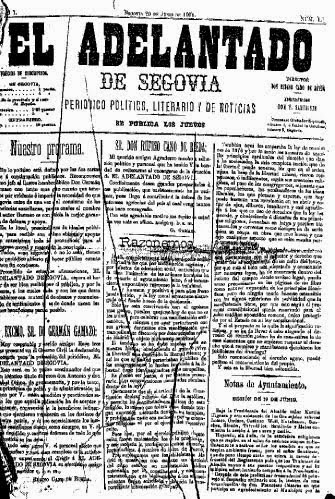Lawrence E.Y. Mbogoni
Dar-es-Salaam: Mkuki Na Nyota, 2013
Because it has been clear lately that my reading hasn't been representative of the world's populations, I've begun a new project. For the 32 most populous countries of the world, according to a count for the year 2000, I want to read 1 book per 20 million inhabitants.
First, the countries whose population was estimated at 38 million to 58 million in 2000:
Tanzania, Poland, Argentina, Spain, Colombia, South Africa, South Korea, Ukraine, Myanmar, Democratic Republic of Congo, Italy.
It has been easy to find Tanzanian books on an online book subscription website, and I've nudged colleagues to recommend Polish books.
 |
| "Kibo on Mt Kilimanjaro" ca. 2007 "This Wikipedia and Wikimedia Commons image is from the user Chris 73 and is freely available at //commons.wikimedia.org/wiki/File:Kibo_Mt._Kilimanjaro_5.JPG under the creative commons cc-by-sa 3.0 license." |
First, a brief introduction to Tanzania:
***
Number of languages: 126
Modern-day state formation year: 1964
Tanganyika and the Zanzibar Archipelago merge to form the United Republic of Tanzania
Colonial 'overlords': Germany, Britain
Tanzania is also home of the African continent's highest mountain:
 |
| "Eastern ice field in Mt Kilimanjaro" ca. 2007 "This Wikipedia and Wikimedia Commons image is from the user Chris 73 and is freely available at //commons.wikimedia.org/wiki/File:Eastern_icefield_Mt._Kilimanjaro.JPG under the creative commons cc-by-sa 3.0 license." |
Capital city: Dodoma
Surface area: 947,303 km2 (larger than Nigeria and smaller than Egypt)
Currency: Tanzanian shilingi (shilling)
Driving side: left
Main exports to these countries: India, Vietnam, South Africa, Switzerland, China
Main imports from these countries: India, Switzerland, Saudi Arabia, China, United Arab Emirates
Crops that are food: maize, cassava, sweet potatoes, beans, bananas, rice, millet
Cash crops, food or not food: sugar, cotton, cashew nuts, tobacco, coffee, sisal, tea
Main meat products: beef, lamb, chicken, pork
***
Aspects of Colonial Tanzania History is an academic book, published in Dar-es-Salaam, by a professor of history at William Paterson University in New Jersey. Aside from teaching at an American university, he also taught at the University of Dar-es-Salaam.
Although the words 'academic book' may strike fear into one's heart if one associates it with the hundreds of pages of dry or waffling prose that one is forced to read as a student, Lawrence E.Y. Mbogoni's style is pithy and fluent. His choice of anecdotes is also striking and often funny.
He does not write about Tanzanian prehistory — famous after archaeological excavations at Oldupai Gorge — or much of the years of Muslim influence and Arab rule until he treats Zanzibar in the late 1800s through the 1960s at the end of the book.
He writes of the British society in the early 20th century. Unlike neighbouring Kenya, the former German colony of Tanganyika fell to the share of the British government mainly after World War I. His, and later Her, Majesty's Government paid salaries to local chiefs, and had a small administration besides. The remaining European contingent was, for example, big game hunters or gold miners who had come to reap the natural resources of the country; doctors; etc. There were few British people who came systematically as settlers.
I was surprised that the 'fool's paradise' of modern-day Tanzania for British government workers and visitors in the early 1900s, and the 'Happy Valley' expatriate society of Kenya that Ngugi wa Thiong'o lampooned in Wrestling with the Devil, sound so similar.
To borrow from Dr. Mbogoni's turns of phrase and to attempt to put his portraits in a nutshell: a British newcomer to Tanzania could listen to the radio, or become a naturalist. If these hobbies weren't to the Briton's taste, the newcomer could drink liquor — whisky, gin, beer, ... the list goes on — and run into debt, to try to cope with homesickness and tedium.
This colonial (mis)rule rather proves the essential ridiculousness of colonialist ideology even from a European standpoint.
Kipling wrote in his famous poem (1899),
Take up the White Man's burden—[...]
Send forth the best ye breed—
Go bind your sons to exile
To serve your captives' need;
To wait in heavy harness
On fluttered folk and wild—
Your new-caught, sullen peoples,
Half devil and half child.
Take up the White Man's burden—The question is why this 'heavy harness' and 'thankless years' were ever thought necessary by anyone — except for financial motives.
Have done with childish days—
The lightly profferred laurel,
The easy, ungrudged praise.
Comes now, to search your manhood
Through all the thankless years,
Cold-edged with dear-bought wisdom,
The judgment of your peers!
At any rate, I am perhaps 1/6th of the way through the book; the next part is about elephant-hunting.
 |
| "Kibo on Mt Kilimanjaro" ca. 2007 "This Wikipedia and Wikimedia Commons image is from the user Chris 73 and is freely available at //commons.wikimedia.org/wiki/File:Kibo_Mt._Kilimanjaro_1.JPG under the creative commons cc-by-sa 3.0 license." |
***
Additional information taken from:
List of countries by population in 2000 [Wikipedia]
Languages of Tanzania [Wikipedia]
Tanzania [Wikipedia]
Lawrence E.Y. Mbogoni [African Books Collective]
Kipling quoted from: The White Man's Burden [Wikipedia]


No comments:
Post a Comment